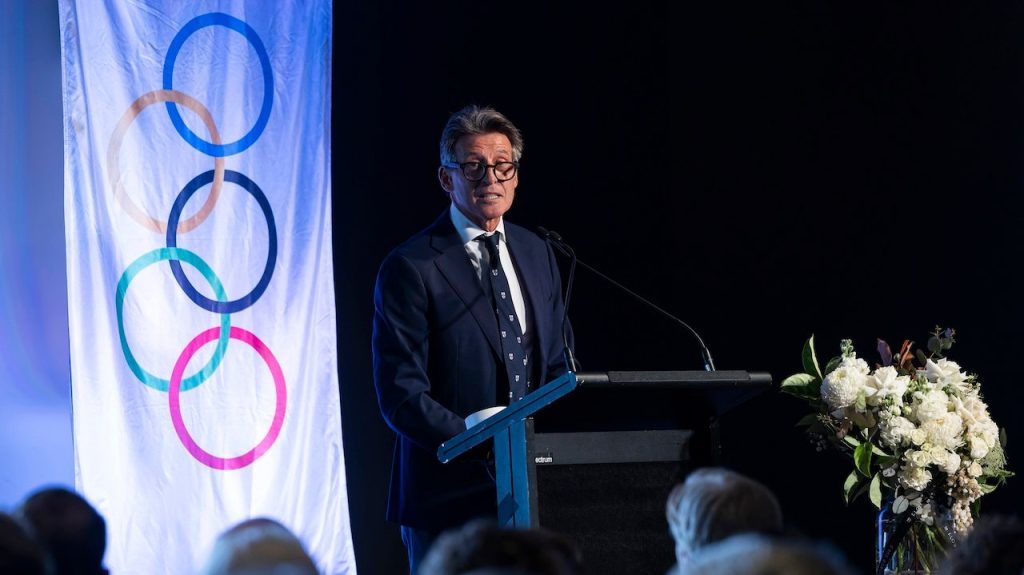Sebastian Coe’s Vision for the Future of the Olympics: Protecting Female Athletes and Redefining Transgender Participation
Lord Sebastian Coe, a two-time Olympic gold medalist and the current president of World Athletics, has unveiled his manifesto for the International Olympic Committee (IOC) presidency, placing the protection of female athletes and the regulation of transgender participation at the forefront of his vision. Coe’s stance diverges significantly from the incumbent IOC president, Thomas Bach, signaling a potential shift in the Olympic landscape should Coe secure the position in 2025.
The core of Coe’s platform revolves around upholding the integrity of women’s sports. He openly criticizes the IOC’s existing transgender inclusion policies, pointing to the controversial participation of athletes Imane Khelif and Lin Yu-ting in the Paris 2024 Olympics as evidence of the policy’s shortcomings. Both athletes had previously been disqualified from competitions for failing gender-eligibility tests, raising concerns about fairness and the biological advantages of transgender women in women’s sports. Coe’s proposed solution draws heavily from his experience at World Athletics, where he spearheaded stricter regulations barring transgender women who have undergone male puberty from competing in the female category.
Coe’s commitment to protecting female athletes aligns with a growing global sentiment questioning the inclusion of transgender women in women’s sports. Citing a United Nations study highlighting the displacement of nearly 900 biological female athletes from podium positions by transgender competitors, Coe emphasizes the need to address the potential disadvantages faced by female athletes. This perspective echoes concerns raised by various stakeholders, including athletes, coaches, and organizations advocating for women’s sports.
The debate surrounding transgender inclusion in sports has intensified, particularly in the United States, where it became a key political issue during the 2024 election cycle. Public opinion, as reflected in polls, largely opposes the inclusion of transgender women in women’s sports, with a significant majority expressing concerns about fairness and the potential erosion of opportunities for female athletes. Coe’s firm stance on this issue positions him as a champion for those who believe that separate categories for male and female athletes are essential for maintaining a level playing field.
Coe’s proposed IOC policy on transgender participation will likely mirror the stringent regulations implemented by World Athletics, focusing on unambiguous criteria and potentially excluding transgender women who have experienced male puberty from competing in the female category. While he hasn’t explicitly endorsed mandatory sex-eligibility tests for all Olympians, his emphasis on clear and unambiguous policies suggests a move towards greater scrutiny and potentially more stringent testing procedures.
The impact of Coe’s potential presidency on the Olympics could be transformative. His commitment to protecting female athletes and re-evaluating transgender inclusion policies promises to reshape the landscape of Olympic competition. This change in direction aligns with growing public concern and could lead to a more defined and perhaps more controversial Olympic future, potentially sparking further debate and discussion regarding the complex interplay of gender identity, fairness, and inclusion in sports. The potential implications extend beyond the Olympics, with Coe’s stance possibly influencing policy decisions in other sporting organizations and further fueling the global conversation on transgender participation in competitive sports.
His manifesto signals a potential paradigm shift in the IOC’s approach to this sensitive issue. While acknowledging the complexities of the debate, Coe’s commitment to revisiting and potentially overhauling the existing policies underscores his belief that protecting the integrity of women’s sports and ensuring fair competition are paramount concerns for the future of the Olympic Games. His vision for the IOC, therefore, hinges on striking a delicate balance between inclusivity and fairness, a challenge that will undoubtedly shape the future discourse and landscape of Olympic sports.

